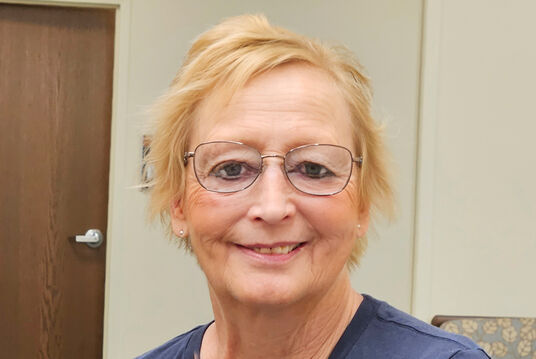

Speak Up Program
As a patient, you can make your care safer by being an active, involved and informed member of your healthcare team. The “Speak Up™” program, sponsored by The Joint Commission and the Centers for Medicare & Medicaid Services, gives simple advice on how you can help make healthcare a better experience:
Speak up if you have questions or concerns.
- If you still don’t understand, ask again. It’s your body and you have a right to know.
- Don’t be embarrassed if you don’t understand something your physician, nurse or other healthcare professional tells you.
- If you’re having surgery, ask the physician to mark the area of the operation.
- Tell the nurse or the physician if you think you are about to get the wrong medicine.
- Tell a healthcare professional if you think he or she has confused you with another patient.
Always make sure you’re getting the right treatments and medicines by the right healthcare professionals.
- Tell your nurse or physician if something doesn’t seem right.
- Expect the healthcare workers to introduce themselves. Look for their identification (ID) badges. If you don’t know who the person is, ask for their ID.
- Don’t be afraid to remind a physician or nurse to wash their hands. Handwashing is the most important way to prevent infections.
- Know what time of the day you normally get medicine. If you don’t receive it on time, tell your nurse or physician.
- Make sure your nurse or physician checks your ID and asks your name before he or she gives you medicine or treatment.
Educate yourself about your illness.
- Ask your physician about the special training and experience that qualifies him or her to treat your illness.
- Gather information about your condition, medical tests, and your treatment plan from your physician, the library, respected web sites and support groups.
- Write down important facts from your physician. Ask your physician if he or she has any written information you can keep.
- Read all medical forms and make sure you understand them before you sign anything. If you don’t understand, ask your physician or nurse to explain.
- Make sure you know how to operate equipment that is being used in your care. If you use oxygen at home, do not smoke or let anyone smoke near you.
Ask a trusted family member or friend to be your advocate (advisor or supporter).
- Your advocate can ask questions that you may not think about when you are stressed.
- Ask this person to stay with you, even overnight, when you are hospitalized. You will be able to rest better. Your advocate can help make sure you get the right medicines and treatments.
- Your advocate can help remember answers to questions you have asked. He or she can speak up for you when you unable to do so yourself.
- Make sure this person knows what you want done regarding life support and other lifesaving efforts if you are unconscious and not likely to improve.
- Go over the consents for treatment with your advocate before you sign. Make sure you both understand the details of the agreement.
- Make sure your advocate understands the type of care you will need when you get home. Your advocate should know what to look for if your condition is getting worse and who to call for help.
Know what medicines you take and why you take them.
Medicine errors are the most common healthcare mistakes.
- Ask about why you should take the medication. Request written information regarding its brand and generic names, as well as possible side effects.
- If you do not recognize a medicine, double-check that it is for you. Ask about medicines before you swallow them. Read the contents of the bags of intravenous (IV) fluids. If you’re not well enough to do this, ask your advocate to do it.
- If you are given an IV, ask the nurse how long it should take for the liquid to run out. Tell the nurse if it seems to be dripping too fast or too slow.
- When you get a new medicine, tell your physicians and nurses about your allergies, or any negative reactions you have had to other medicines.
- If you are taking a lot of medicines, ask your physician or pharmacist if it is safe to take those medicines together. Do the same thing with vitamins, herbs and over-the-counter drugs.
- Make sure you can read the handwriting on prescriptions written by your physician. If you can’t, the pharmacist may not be able to either. Ask the physician’s office to print the prescription, if necessary.
Use a hospital, clinic, surgery center or other type of healthcare organization that has been carefully inspected.
For example, The Joint Commission visits hospitals to see if they are meeting The Joint Commission’s quality standards.
- Ask the healthcare organization about how experienced they are in caring for people with your type of illness. How often do they perform the procedure you need? What special care do they provide to help patients get well?
- If you have more than one hospital from which to choose, ask your physician which one offers the best care for your condition.
- Before you leave the hospital or other healthcare facility, ask about follow-up care and make sure that you understand all of the instructions.
Go to Quality Check at www.qualitycheck.org to find out whether your hospital or other healthcare organization is accredited. This means the hospital or healthcare organization works under rules that ensure patient safety and quality standards are followed.
What Mary Lanning Healthcare does to help you Speak Up™:
- Seeks your input regarding your care.
- Personalizes your care by understanding your medical needs.
- Answers your questions and provides you with helpful information regarding your diagnosis.
- Anticipates your needs, and those of your family, and appropriately includes all of you in your health care decisions.
- Keeps up-to-date on current practices, standards and technology to offer you safe healthcare.
- Maintains quality through meeting recognized standards offered by accrediting organizations like The Joint Commission.
- Plans your care based upon your wishes.
If you have any questions or concerns regarding service, patient safety or quality of care, please call 402-461-5213.
You may also contact any of the following with concerns about patient safety or quality of care:
- Patient Advocate: 402-461-5319
- Administrative Offices (M-F 8:00 a.m. - 5:00 p.m.): 402-461-5108
If you are unable to resolve issues through this office, please contact our accrediting organization:
The Joint Commission
One Renaissance Boulevard
Oakbrook Terrace, IL 60181





